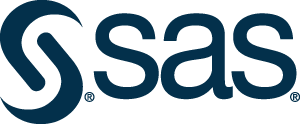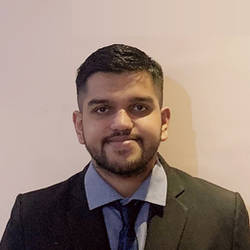Home Pages: PAW Business | PAW Financial | PAW Healthcare | PAW Industry 4.0 | PAW Climate | Deep Learning World
Agenda
Predictive Analytics World for Industry 4.0 2021
May 24-28, 2021
To view the full 7-track agenda for the six co-located conferences at Machine Learning Week click here or for the individual conference agendas here: PAW Business, PAW Financial, PAW Healthcare, PAW Industry 4.0, PAW Climate or Deep Learning World.
Session Levels:
Blue circle sessions are for All Levels
Red triangle sessions are Expert/Practitioner Level
Orange square sessions are Practitioner Level
Green triangle sessions are Beginner Level
Workshops - Wednesday, May 19th, 2021
Full-day: 7:15am – 2:30pm PDT
This one-day session surveys standard and advanced methods for predictive modeling (aka machine learning).
Full-day: 7:30am – 3:30pm PDT
Gain experience driving R for predictive modeling across real examples and data sets. Survey the pertinent modeling packages.
Workshops - Thursday, May 20th, 2021
Full-day: 8:00am – 3:00pm PDT
This workshop dives into the key ensemble approaches, inc zluding Bagging, Random Forests, and Stochastic Gradient Boosting.
Full-day: 8:00am – 3:00pm PDT
Python leads as a top machine learning solution – thanks largely to its extensive battery of powerful open source machine learning libraries. It’s also one of the most important, powerful programming languages in general.
Full-day: 8:00am – 3:00pm PDT
Machine learning improves operations only when its predictive models are deployed, integrated and acted upon – that is, only when you operationalize it.
Workshops - Friday, May 21st, 2021
Full-day: 7:15am – 2:30pm PDT
This one-day session reveals the subtle mistakes analytics practitioners often make when facing a new challenge (the “deadly dozen”), and clearly explains the advanced methods seasoned experts use to avoid those pitfalls and build accurate and reliable models.
Predictive Analytics World for Industry 4.0 - Virtual - Day 1 - Monday, May 24th, 2021
Amazon's vision is to be earth's most customer-centric company. This talk explores how the Alexa Hybrid Science team in Pittsburgh, PA applies a customer-centric lens to cutting-edge machine learning research. The team is responsible for developing on-device Alexa automatic speech recognition models to provide a faster, more reliable Alexa experience. Our research includes neural network compression techniques, end-to-end spoken language understanding and optimizing machine learning for edge devices.
The quality of any machine learning or deep learning model depends on the values that define the model structure and corresponding hyperparameters. Many practitioners may find themselves investing countless hours manually searching for the right model and related hyperparameter values. Some use highly inefficient grid search methods. Others will use simple random sampling, which actually works fairly well. But alone, this method only offers a globalized search, and other sampling methods may be better suited to the job.
Why not use machine learning to automate the search for the best model?
This presentation details an advanced approach that uses both global and local search strategies that can be evaluated in parallel to ensure a quick and efficient exploration of the decision space. In the case of this presentation, a genetic algorithm (GA) will be examined for the global search because the selection and crossover aspects of a GA distinguish it from a purely random search. A generating set search (GSS) will be used to greedily search the local decision space.

I4.0 has created a plethora of applications and vendors competing for attention in the manufacturing space. Many vendors are pushing platforms and enablement yet what manufacturers really need are hard core scalable use cases that deliver measurable impact and value. This cannot be solved by an individual vendor or platform. I4.0 success is dependent on cooperation and partnership between different players in the I4.0 landscape and a new approach to continuous improvement in order to massively reduce the time it takes to derive action, impact and value from data.
Scanning Electron Microscope (SEM) images are the primary means used by expert engineers to identify and diagnose defects in semiconductor variable shape beam (VSB) mask writers. Deep learning (DL) offers an attractive alternative to this tedious process. However, extremely robust mask writers preclude collecting a large variety of SEM images to train DL models. Using digital twins that can mimic SEM images provides an exceptional way to synthesize ample DL training data. This talk will take a deep dive into synthesizing SEM images and leveraging them to build DL models for VSB mask writer defects analysis.
Engineering design simulation generates enormous amounts of structure data, the bulk of which is never studied or mined for insights. Several case studies will be presented for advancing the belief that simulation data presents an opportunity to allow innovation, hidden insights and guidance to emerge thru the use of simple ML techniques.
Join your fellow practitioners in this interactive session where you can exchange approaches to shared challenges and hear how your peers are tackling similar issues.
Predictive Analytics World for Industry 4.0 - Virtual - Day 2 - Tuesday, May 25th, 2021
Grab your real coffee and share experiences virtually with your peers to explore the new challenges of operating in a largely virtual world. Just like pre-show breakfast in a regular conference you’ll join a “round table” with seven fellow attendees and see where the conversation takes you.
With the need to cater to a global audience, there is a growing demand for applications to support speech identification/translation/transliteration from one language to another. This talk starts off with a brief introduction to the topic of Machine Translation (MT), the evolution/application of Machine Translation. The focus will be on Neural Machine Translation (NMT). Then it moves on to introduce some of the typical customer cases and finally ends with how to embed such functionality in your application. The talk will showcase how maintenance and company records across various subsidiaries which might be in their local language can be standardized into a common language so that all the global data can be used for NLP models.
Unplanned downtime is one of the largest sources of lost production in the manufacturing world, leading directly to a loss of possible revenue. The rise of the Internet of Things has led to the development of advanced predictive maintenance solutions aiming to help manufacturers achieve the ultimate goal: zero unplanned downtime. While advances in technology have led to broader adoption of these IoT solutions, many of them are still not accurate enough to rely on. Markus Larsson from Xerox’s Palo Alto Research Center (PARC) talks about what innovators can do to bring IoT predictive maintenance to the next level.
Elder Research, a data science consultancy, and Sira-Kvina kraftselkap, a large Norwegian power producer, have deployed deep learning models as part of a predictive maintenance solution to identify likely component failures within hydroelectric generator and turbine systems. In this session, we discuss the design concept, modeling approach, solution architecture, and how it is implemented as part of the maintenance team workflow. We will also explain what makes machine learning so challenging in the utlities industry where labeled cases are in short supply.
Join your fellow practitioners in this interactive session where you can exchange approaches to shared challenges and hear how your peers are tackling similar issues.
Predictive Analytics World for Industry 4.0 - Virtual - Day 3 - Wednesday, May 26th, 2021
Grab your real coffee and share experiences virtually with your peers to explore the new challenges of operating in a largely virtual world. Just like pre-show breakfast in a regular conference you’ll join a “round table” with seven fellow attendees and see where the conversation takes you.
Models generalize best when their complexity matches the problem. To avoid overfit, practitioners usually trade off accuracy with complexity, measured by the count of parameters. But this is surprisingly flawed. For example, a parameter is equivalent to one "degree of freedom" only for regression; it can be > 4 for decision trees, and < 1 for neural networks. Worse, a major source of complexity -- over-search — remains hidden. The vast exploration of potential model structures leaves no trace on the final (perhaps simple-looking) model, but has outsized influence over whether it is trustworthy.
I’ll show how Generalized Degrees of Freedom (GDF, by Ye) can be used to measure the full complexity of algorithmic modeling. This allows one to fairly compare very different models and be more confident about out-of-sample accuracy. GDF also makes clear how seemingly complex ensemble models avoid overfit, and lastly, reveals a new type of outlier -- cases having high model influence.
Deep learning models for forecasting and planning have shown significant promise for handling multiple variables, uncovering hidden patterns, and producing accurate forecasts. However, as one might expect, deep learning models are also complex and rife with pitfalls. Since these techniques often seem like a ‘black box,’ managers -- both technical and nontechnical backgrounds -- can find them hard to master.
In this session, Senior Data Scientist, Javed Ahmed will focus on the intuition behind various deep learning approaches, explore how managers can tackle highly complex models by asking the right questions, and evaluating the models with familiar tools.
Attendees at the Metis session will leave with the tools to:
● Identify types of forecasting applications that can benefit from deep learning
● Broadly understand deep learning approaches relevant to forecasting
● Understand pitfalls related to deep learning approaches, and why simpler models may work better
● Evaluate the results of a forecasting program
With the promise around analytics and AI, many organizational leaders have easily bought into their adoption to drive business growth and impact. For success to be achieved, these leaders need to be committed to the process, creating an organizational foundation to support the development of analytics and AI tied to their business strategy. Commitment (vs buy-in) is much harder to achieve. This talk will explore the differences between organizational commitment and buy-in, what struggles to look out for, and how to develop the commitment to ensure organizational success with data analytic adoption. Sarah will share her experiences of leading and raising organization's analytic maturity, and how the buy-in and commitment differences play into this success.
Take a break or join your fellow practitioners in this interactive session where you can exchange approaches to shared challenges and hear how your peers are tackling similar issues.
Machine teaching is a complementary approach to machine learning. It helps those without AI expertise break a complex problem into simpler tasks and give the AI model important clues about how to find a solution quickly. In this session, we talk about the current limitations with control systems and how AI is bridging that gap by training intelligent controllers .
Predictive Analytics World for Industry 4.0 - Virtual - Day 4 - Thursday, May 27th, 2021
Grab your real coffee and share experiences virtually with your peers to explore the new challenges of operating in a largely virtual world. Just like pre-show breakfast in a regular conference you’ll join a “round table” with seven fellow attendees and see where the conversation takes you.
As organizations increase their maturity in the adoption of machine learning and AI, they are learning important lessons along the way. In this keynote presentation, Steven Ramirez, CEO of machine learning consultancy Beyond the Arc, will focus on 3 key takeaways:
6 steps to accelerate the pace of AI adoption
Ways to level-up your capabilities with NLP, open stack tools, and cloud-native approaches
Cultivating talent for AI progress
Join your fellow practitioners in this interactive session where you can exchange approaches to shared challenges and hear how your peers are tackling similar issues.
Building a strong AI/Machine Learning Community means more than just checking off a box. It means enabling your workforce with critical technical skills, promoting the adoption of advanced analytics, and providing overall faster customer response times. It means creating an inclusive space where your employees feel heard and are able to share best practices, current issues, and new project ideas and technologies.
Dive deeper with us into what it takes to get a community set up, where some common pitfalls occur, the expected benefits for stakeholders, and finally some tips and tricks for growing your community and helping it thrive!
Take a break or join your fellow practitioners in this interactive session where you can exchange approaches to shared challenges and hear how your peers are tackling similar issues.
Enhanced accessibility and availability to data has resulted in the increasing demand for data scientists within the logistical and supply end of industry. Yet, with this great reservoir of information, data scientists are faced with key challenges in the development of their solutions. In this session, we explore both the traditional as well as new challenges of the data scientist in this environment. The alignment of the right data infrastructure in solving the right business problem is just one example. New data sources and new tools exacerbate this issue but the disciplined process approach towards the data science process is the constant. By looking at a variety of industries such as insurance, travel , and health, we examine how to develop the best practices within this process. A number of examples and case studies will be presented to explore the increased shift and emphasis towards data science skills that focus less on the technical and more on identifying the business problem.
Predictive Analytics World for Industry 4.0 - Virtual - Day 5 - Friday, May 28th, 2021
Reducing unplanned downtime requires the proactive maintenance of assets to keep operation running smoothly. Unfortunately, many organizations rely on time-based or usage-based maintenance rather than actual need to determine when to best schedule a maintenance activity. Predictive maintenance instead uses data from operations to determine the health of the asset and can be used to determine when it is best to perform maintenance. We developed intelligent digital twin technology that utilizes sensor data to assess the health and prognostics of a system based on predictive models built with physics-based simulation data. A digital twin is a digital representation of a physical asset that acts as a “single source of truth” for the asset. By incorporating predictive analytics into a digital twin, we can calculate maintenance-related parameters that would allow for appropriate intervention. In this session we will discuss some of the technology available to implement digital twins. We will also discuss how to augment the basic capabilities of digital twins with predictive algorithms for condition-based maintenance. In particular we will discuss developing a digital twin of a naval vessel that assesses the efficiency of various propulsion system components to determine the state of decay of the components.
Join your fellow practitioners in this interactive session where you can exchange approaches to shared challenges and hear how your peers are tackling similar issues.
Webex Contact Center is a multi-tenanted Cloud Contact Center solution from Cisco, that scales to thousands of concurrent interactions. Improving Agent Performance directly impacts the efficiency and effectiveness of Contact Centers. We are building the next generation AI enabled interaction experiences to create super agents. With the help of AI, agents can now focus on the customer, understand their sentiment and answer questions quickly. AI capabilities that were built include Speech-To-Text transcriptions, sentiment analysis, Question-Answering and Topic Modeling. AI Models by themselves don't become a scalable solution. Serving these models at scale, specifically for a multi-tenanted cloud service, takes additional planning, architectures, capabilities and operations. This session discusses the unique challenges, solutions and takeaways in building and deploying these models and solutions. Key topics addressed are- Multi-tenanted Cloud Services: unique considerations- Model Scaling Challenges for real time- Architecture options for scaling Models- Adapting Models to serve at scale- Tuning Models for Resource & Cost scaling
Take a break or join your fellow practitioners in this interactive session where you can exchange approaches to shared challenges and hear how your peers are tackling similar issues.
In this talk we are going to walk through a design of the typical operating recommender system that operates at a large scale. As part of this talk we are going to do a few deep-dives in the various aspects of the recommender systems and will cover various topics that are critical for the recommender system design, but usually do not receive enough attention, such as:
· Desired properties for multi-stage ranking system
· Sparse features for ranking models
· Limitations of the current approaches used in common models and possible ways to address those























